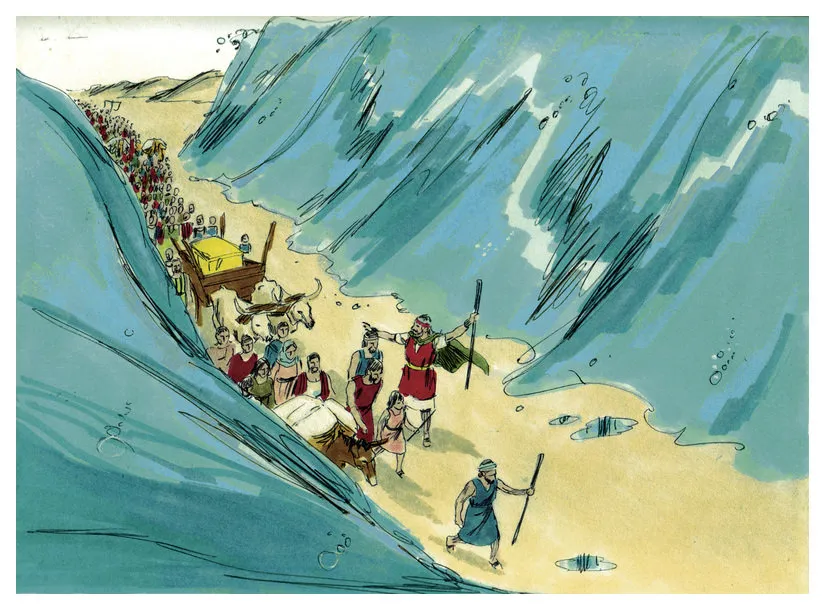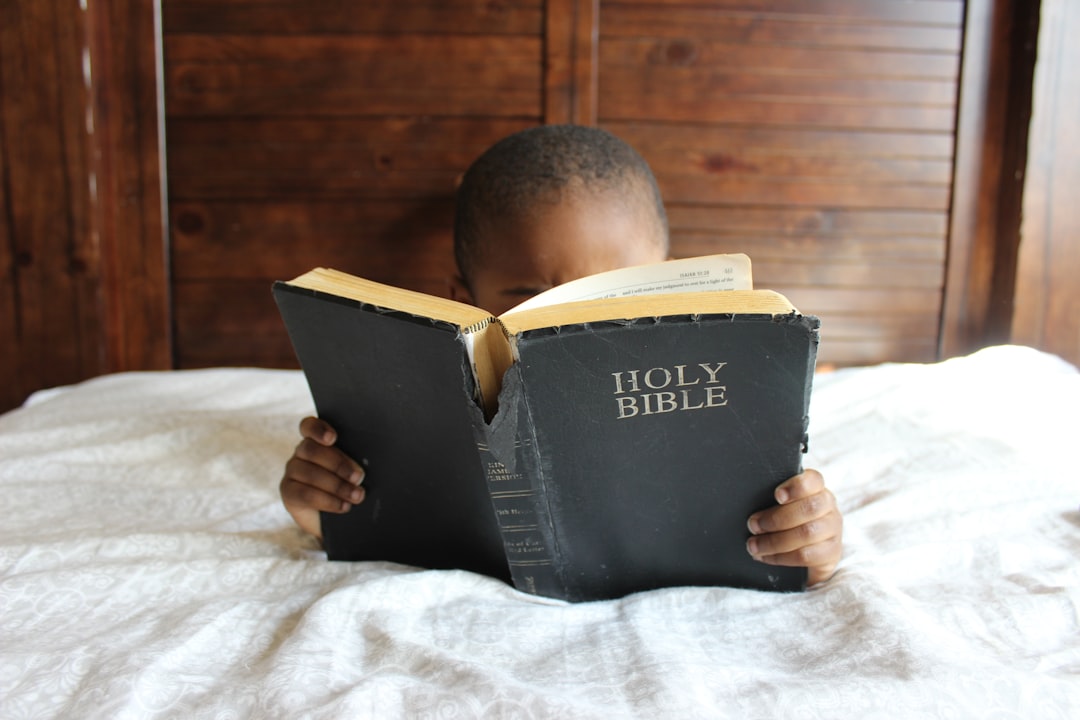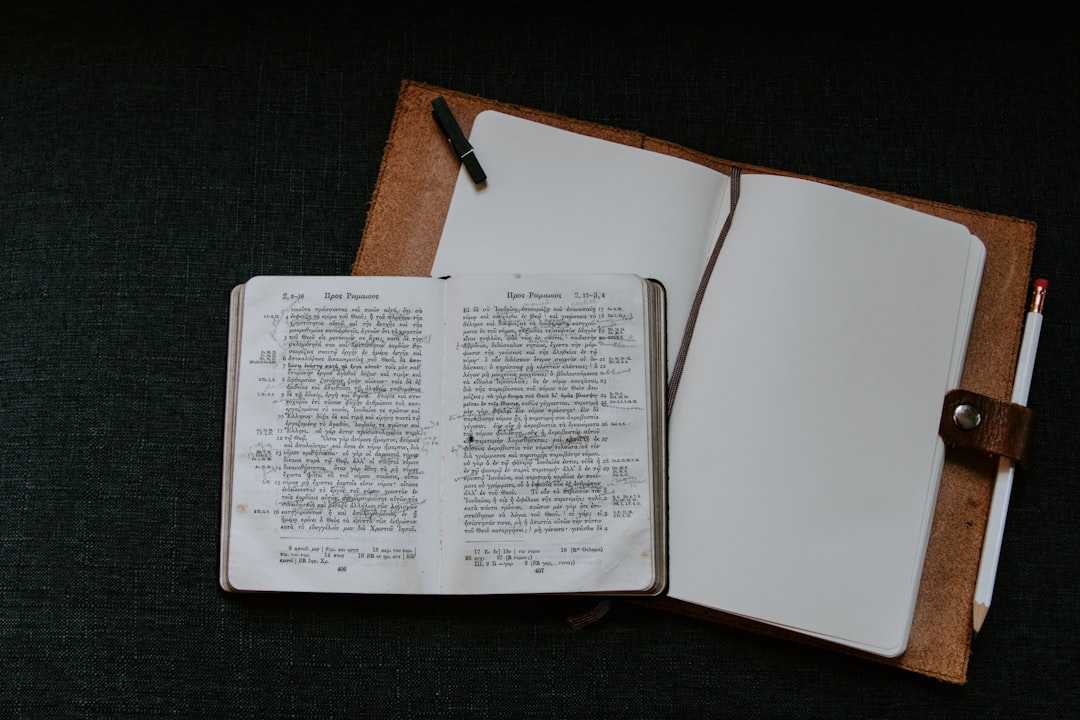The Bible is full of stories of inspiring individuals, including Elimelech. Who was he and what was his significance in the biblical narrative, especially in relation to his wife Naomi and daughter-in-law Ruth? Our blog post takes a closer look at Elimelech, his family, and their journey, which ultimately led to redemption. Read more to discover the fascinating tale of this biblical figure.
The Famine that led Elimelech to journey to Moab

As you delve into the story of Elimelech, Naomi, and Ruth in the Bible, you’ll discover that it all started with a famine that struck the land of Israel. Elimelech, a husband and father, was faced with the difficult decision of how to provide for his family during this time of scarcity. With no other options in sight, he made the choice to journey with his family to Moab, a foreign land.
This must have been a scary and uncertain time for Elimelech and his loved ones. Leaving their homeland and the comfort of their community to venture into unknown territory would have been a big leap of faith. However, their trust in God would have been their anchor during this difficult time.

After settling into Moab, Elimelech’s family grew with the addition of two sons, Chilion and Mahlon. They lived there for some time, until tragedy struck. Elimelech passed away, leaving Naomi a widow. Then, both of her sons also passed away, leaving her alone in a foreign country.
Despite the challenges she faced, Naomi didn’t lose faith in God. She must have clung to His promises during this uncertain and painful time. Eventually, she heard that the famine in Israel had ended, and she made the decision to return to her homeland. Naomi encouraged her daughters-in-law to stay in Moab and find new husbands, but Ruth, Elimelech’s daughter-in-law, refused to leave her side.
This decision by Ruth would ultimately lead to the love story between her and Boaz, a man in Israel who showed kindness and compassion to her and Naomi. From this relationship, redemption and restoration would come to Elimelech’s family line.
The story of Elimelech’s journey to Moab reminds us that life can be unpredictable and difficult. But even in the midst of trials and uncertainty, we can place our trust in God and know that He is always with us.
Elimelech’s family: His wife Naomi and their sons, Chilion and Mahlon
Elimelech was not the only significant figure in the story of Ruth. He also had a family that played key roles in the events that unfolded.
Firstly, there was his wife Naomi. She was a Moabite woman who married Elimelech and moved to Israel with him. When their family faced famine in Bethlehem, they went to Moab to find food. Sadly, Elimelech died there, leaving Naomi as a widow.
Naomi’s story was also one of great loss. After Elimelech’s death, both of her sons, Chilion and Mahlon, also died, leaving her alone with her daughters-in-law, Ruth and Orpah. The three women were all widows and faced a difficult future.
Despite the challenges they faced, Naomi and Ruth formed a lasting bond. Ruth vowed to stay with and care for Naomi, even if it meant leaving her own homeland of Moab to travel to Israel. Naomi was impressed by Ruth’s faith and trust in God and urged her to seek redemption through marriage to a relative of Elimelech’s, Boaz.
Chilion and Mahlon’s deaths were significant not only for their impact on Naomi’s life, but also for their impact on the lineage of Elimelech. Without any living sons to continue the family line, Elimelech’s name and legacy were in danger of being forgotten. However, through Ruth’s marriage to Boaz, Elimelech’s lineage was continued, resulting in the birth of their son, Obed. Obed became the father of Jesse, who was the father of King David, making Elimelech an ancestor of Jesus Christ.

The story of Elimelech’s family reminds us that even in the face of difficult circumstances, there is hope for redemption and a future. It also highlights the importance of family and the impact that even one person’s actions can have on the course of history.
In the next section, we will explore the story of Ruth and Boaz and how their relationship played a key role in the redemption of Elimelech’s family.
The Death of Elimelech and His Sons in Moab
After experiencing a severe famine in Israel, Elimelech journeyed to Moab with his wife Naomi and their two sons, Chilion and Mahlon. Moab was a neighboring country to Israel, and it was not uncommon for people to travel there in search of food and better living conditions. Unfortunately, things didn’t go as planned for Elimelech and his family.
While in Moab, Elimelech passed away, leaving Naomi a widow. Things went from bad to worse when both of her sons, Chilion and Mahlon, also died while living in Moab. As a result, Naomi was left alone and vulnerable in a foreign country.
The deaths of Elimelech and his sons were a tragic turn of events for the family. It is not clear why Elimelech died, but it’s possible that he might have fallen ill or met with an accident. Chilion and Mahlon, on the other hand, married Moabite women, which was against Jewish custom and tradition. Some scholars believe that this was the reason for their early deaths.
When Elimelech, Chilion, and Mahlon died, Naomi was left alone and faced with a difficult decision. She could either stay in Moab and try to make a new life for herself or return to Israel, where she could be with her people but faced an uncertain future.
« The Ultimate Guide to Becoming an Evangelist
Understanding False Doctrine: The Importance of Biblical Accuracy. »
As we know from the Book of Ruth, Naomi decided to return to Israel with her daughter-in-law Ruth by her side. This decision would ultimately change the course of their lives and result in a beautiful love story between Ruth and Boaz.
The deaths of Elimelech and his sons were undoubtedly a significant loss for Naomi, but they were also an essential part of the journey that led her to redemption. Although it might be challenging to understand why God allowed these things to happen, we can trust in His plan and have faith that He will work everything together for our good.
In summary, the death of Elimelech and his sons in Moab were tragic events that deeply impacted Naomi’s life. However, they were also part of the journey that led her to the love of Boaz and ultimately to the lineage of Jesus.
Naomi’s Return to Israel with Ruth from Moab
After the deaths of Elimelech and their two sons in Moab, Naomi was left as a widow in a foreign land. She heard that the famine in Israel had ended, and decided to return home. Naomi pleaded with her two daughters-in-law, Ruth and Orpah, to stay in Moab and find new husbands. Orpah agreed, but Ruth was determined to stay by Naomi’s side, saying, “Where you go I will go, and where you stay I will stay. Your people will be my people and your God my God.” (Ruth 1:16)

So Naomi and Ruth journeyed together back to Israel, arriving in Bethlehem at the beginning of the barley harvest. Naomi was greeted by many people who were surprised to see her, and some even asked if she was really Naomi. She replied, “Don’t call me Naomi,” she told them. “Call me Mara, because the Almighty has made my life very bitter” (Ruth 1:20). This passage shows the depths of Naomi’s struggles and her willingness to openly share her emotions with those around her.
As a poor widow, Naomi and Ruth needed to find a way to support themselves. According to Old Testament law, poor people were allowed to follow behind the harvesters in the fields and pick up any grain that had been missed. Ruth decided to go out and glean in the fields, and through divine providence, she ended up gleaning in the field of Boaz, a wealthy kinsman of Elimelech.
Boaz noticed Ruth and asked his workers about her. He found out that she was Naomi’s daughter-in-law and decided to show her kindness. Boaz told Ruth to stay in his field and instructed his workers to leave extra grain for her to glean. He also invited her to eat with him and his workers during the harvest.
Through Boaz’s kindness, Ruth and Naomi were able to survive and even thrive in Israel. Later on, Boaz and Ruth got married and had a son named Obed, who became the father of Jesse and grandfather of King David. This lineage is significant because it shows how God used the faith and trust of these individuals to continue the line that would eventually lead to the birth of Jesus Christ.
In the story of Naomi’s return with Ruth from Moab, we see the themes of widowhood, poverty, and redemption. It is a beautiful story of faith, kindness, and love that shows how God can work through even the most difficult circumstances for our ultimate good.

Boaz and Ruth: The Love Story that Resulted in Redemption
After the death of Elimelech, his sons Chilion and Mahlon, Naomi and her daughters-in-law faced uncertain futures in Moab. But amidst the bitter loss, one of the daughters-in-law, Ruth, made a remarkable decision to remain loyal to Naomi and to the Israelite God. She famously proclaimed: “Where you go I will go, and where you stay I will stay. Your people will be my people and your God my God” (Ruth 1:16).
Upon returning to Israel, Ruth went to glean in the fields, and by a stroke of divine providence, she met Boaz – a distant relative of Elimelech. Boaz was impressed by Ruth’s devotion and kindness and showed her great favor by allowing her to glean from his fields and even instructing his workers to “leave some stalks for her to glean” (Ruth 2:16).
Boaz knew of Ruth’s situation and took it upon himself to provide for her and Naomi. He even blessed her with an abundance of barley and sent her home with enough for a week’s worth of meals along with Naomi.
As the story unfolds, we see Boaz and Ruth’s relationship grow as they continue to interact with one another. When Ruth’s mother-in-law suggested that Ruth lay at Boaz’s feet in the night, it was Boaz who publicly praised Ruth for her kindness and offered to act as her kinsman-redeemer – a role typically filled by a close family member – and marry her in order to redeem Elimelech’s family line.

Ultimately, Boaz and Ruth’s marriage resulted in the redemption of Elimelech’s name and lineage. Naomi, once a widow and facing a difficult future, was blessed with a new family. The book of Ruth concludes with a genealogy tracing the lineage from Perez – the son of Judah – all the way to David, one of Israel’s greatest kings. It’s worth noting that Ruth, a Moabite, is one of only four women named in Jesus’ genealogy in the New Testament.
The love story of Boaz and Ruth is truly a beautiful one. It’s a story of loyalty, kindness, and faith. It’s also a story of redemption – a reminder that God can use even the most difficult circumstances for His ultimate purposes.
Boaz and Ruth’s story is one that still resonates with us today. It’s a reminder that true love and selflessness can result in something truly beautiful. It’s also a reminder of the empowering truth that God can use our lives and choices to accomplish His will and fulfill His promises, just as He did through Ruth and Boaz.
In summary, here’s a list of key takeaways from Boaz and Ruth’s love story:
- Acts of kindness and faithfulness can lead to unexpected blessings
- Divine providence often works in mysterious ways
- God’s plan is greater than our own and can be seen through the most unexpected circumstances
- Redemption of past mistakes and hardships is possible through God’s grace and mercy
- Our lives can play a role in the greater story of God’s plan for humanity.
The Genealogy of Elimelech and the Significance of His Lineage
Elimelech, a biblical figure in the Old Testament, is the husband of Naomi and the father of their two sons, Chilion and Mahlon. He is known for his decision to journey with his family to Moab during a time of famine in Israel. However, in Moab, Elimelech and his sons died, leaving Naomi to return to Israel as a widow with her daughter-in-law, Ruth.

While it may seem that Elimelech’s story ends there, his lineage and family history are significant in the genealogy of the Israelites. Elimelech is from the tribe of Judah and his family is from Bethlehem, which is significant in the lineage of King David and ultimately, Jesus Christ.
Elimelech’s decision to leave Israel during the famine may have been borne out of a desire to protect his family and provide for them, but it may also have been a test of his faith and trust in God. While we may not understand the reasons behind his actions, we can see how his story and his family’s lineage are intertwined with the larger narrative of redemption in the Bible.
The Book of Ruth, which recounts the story of Elimelech, Naomi, and Ruth, serves as a reminder of God’s faithfulness and love for his people. Through the relationship between Boaz and Ruth, we see how God provides and redeems those who trust in him.
As Christians, we can learn from Elimelech’s story to trust in God even when we don’t fully understand our circumstances. We can also take inspiration from his lineage and ancestry, seeing how God uses families and individuals within them to play a significant role in his plan for salvation.
In conclusion, while Elimelech’s story may seem to be a small footnote in the larger narrative of the Bible, his lineage and family history have significant implications for the Israelites, King David, and ultimately, for Christians. We can draw inspiration from his faith (and potentially lack thereof), and learn to trust in God’s plan for our lives even when times are difficult.












